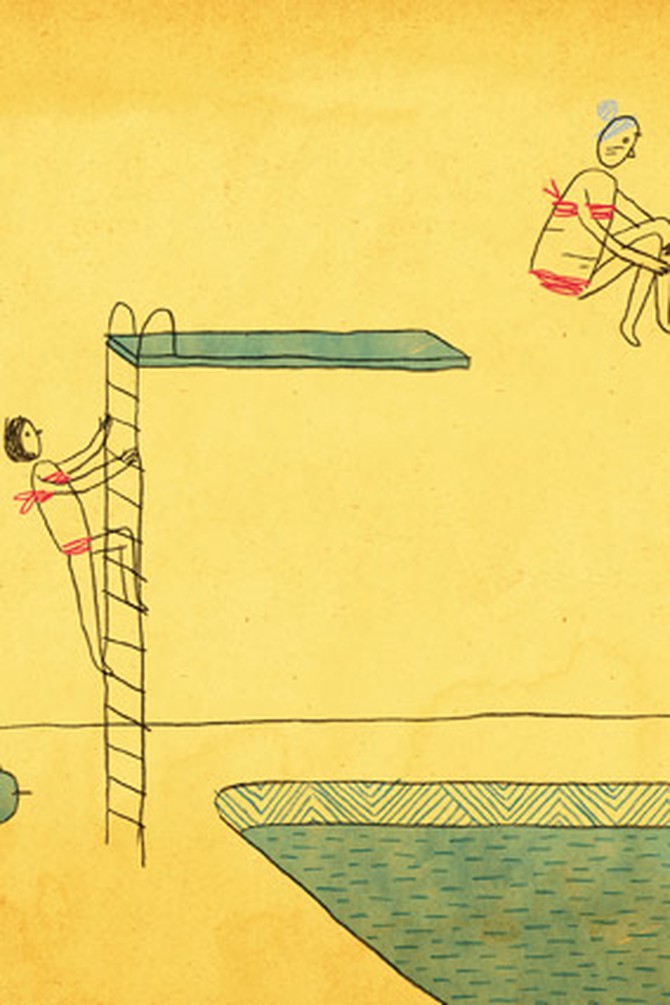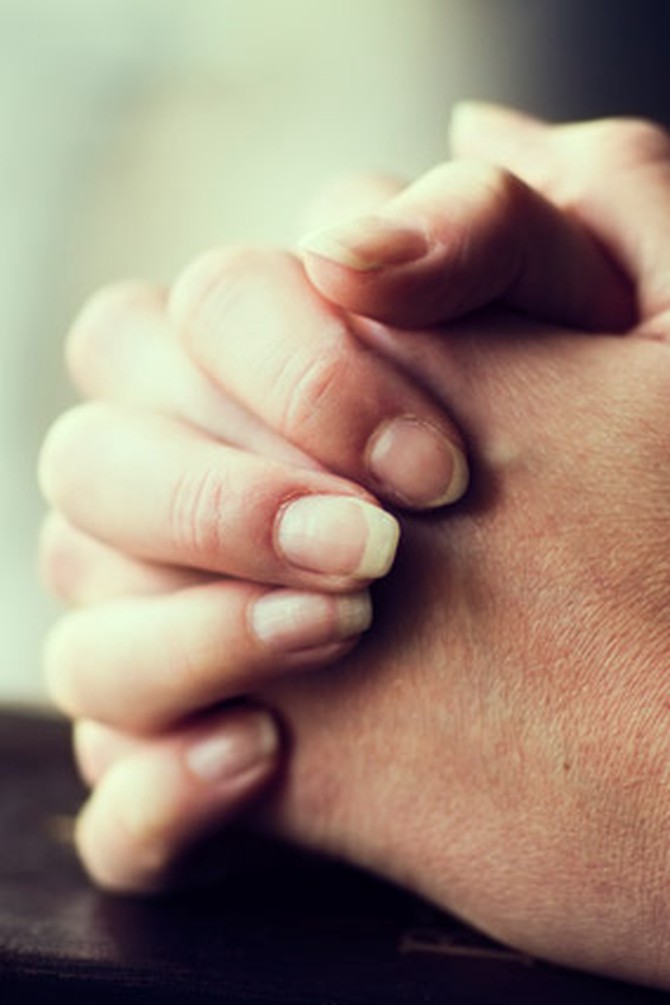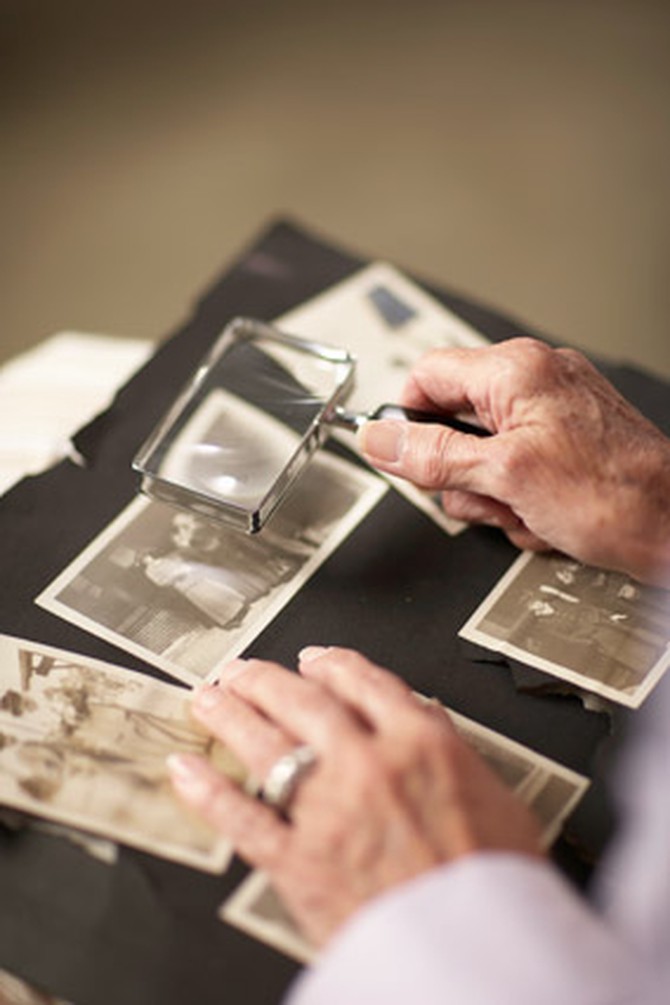5 of Life's Toughest Questions—Answered

Photo: Darren Braun
How Can I Be Hopeful When the World Seems Hopeless?
I've covered genocide, massacres and sexual violence in my career, so people expect me to be traumatized and depressed, a human version of Eeyore. But even when I report the most horrific stories, I often return feeling better about humanity. Side by side with the worst of people, you usually find the best.
I remember one trip to Congo, covering the most lethal conflict since World War II. I interviewed a warlord and the victims of his brutality, and he left a deep impression on me of the capacity for evil. Yet on the same trip I interviewed a Polish nun who had stayed behind when all other aid workers were evacuated, and she was feeding the hungry and negotiating to keep the warlord at bay. I came back wanting to become a Polish nun! That happens time and again. When people are tested, a remarkable number of them show courage and resilience.
New York Times columnist Nicholas Kristof has twice won the Pulitzer Prize for his reporting on human-rights issues.
I remember one trip to Congo, covering the most lethal conflict since World War II. I interviewed a warlord and the victims of his brutality, and he left a deep impression on me of the capacity for evil. Yet on the same trip I interviewed a Polish nun who had stayed behind when all other aid workers were evacuated, and she was feeding the hungry and negotiating to keep the warlord at bay. I came back wanting to become a Polish nun! That happens time and again. When people are tested, a remarkable number of them show courage and resilience.
New York Times columnist Nicholas Kristof has twice won the Pulitzer Prize for his reporting on human-rights issues.

Photo: Brian Rea
I'm Aging—and Panicking. Where Can I Find Peace?
As you get older, you find yourself turning into your parents, but that helps you understand them. You're humbled, because you begin to see how easy it is to make mistakes. Also, I think facing your own mortality gives you courage: If not now, when? I lost both my parents, and then at age 51 I finally bought a cello, because by God, I'd always wanted to play. The sooner you start to number your days, the better you'll live the days that you have. I went snorkeling along the Great Barrier Reef a few years ago, and I was terrified to let go of the boat—but when I saw the coral, it was so beautiful that I could have stayed there forever. I said to myself, "This is it. All you have is the here and now, and your here is gorgeous. Be as alive to it as you can."
Psychotherapist Wendy Lustbader is the author of Life Gets Better: The Unexpected Pleasures of Growing Older.
Psychotherapist Wendy Lustbader is the author of Life Gets Better: The Unexpected Pleasures of Growing Older.

Photo: Thinkstock
What If I Want to Pray, But I'm Not Sure Anyone's Listening?
Even those of us who are convinced that there's no greater power tend to look outside ourselves in times of extraordinary stress. Often it's just Please help this plane land! But when the plane lands, shouldn't there be a mirror impulse of Thank you?
I don't think there's a wrong way to pray. You just bring who you are, and you sort of rip your rib cage open: This is where I'm at, this is who I'm thinking about, this is what I'm thankful for. The most beautiful prayers are generally the ones that happen spontaneously. It's less about escaping the everyday flow of life than engaging with it.
There's evidence that praying can help us physiologically—the stillness, the quiet, the deep breathing. But more important, I think, is the fact that acknowledging some power beyond yourself opens you up in unique ways. Human beings are not static, and the direction of your thoughts deeply shapes the kind of person you are becoming. I believe prayer helps you become your best possible self.
Pastor Rob Bell's most recent book is What We Talk About When We Talk About God.
I don't think there's a wrong way to pray. You just bring who you are, and you sort of rip your rib cage open: This is where I'm at, this is who I'm thinking about, this is what I'm thankful for. The most beautiful prayers are generally the ones that happen spontaneously. It's less about escaping the everyday flow of life than engaging with it.
There's evidence that praying can help us physiologically—the stillness, the quiet, the deep breathing. But more important, I think, is the fact that acknowledging some power beyond yourself opens you up in unique ways. Human beings are not static, and the direction of your thoughts deeply shapes the kind of person you are becoming. I believe prayer helps you become your best possible self.
Pastor Rob Bell's most recent book is What We Talk About When We Talk About God.

Photo: Thinkstock
How Can I Leave a Lasting Legacy?
When my father was diagnosed with cancer two years ago, I knew the bare bones of his history. He was a Californian, one of seven siblings, and had a passion for sailing. But the person he'd been before I came along was unimaginable to me. Suddenly I wanted to know—needed to know—about all he'd seen and done. So I asked him to tell me the stories of his life, and he told me to ask him anything.
He's witnessed riots in L.A., worked in a mercury mine, backpacked the John Muir Trail. He was a conscientious objector during Vietnam and regrets that he never finished college. One day he said, "Why haven't you asked me about my first great love?" And then I realized that it was as important for him to share as it was for me to listen. Through his stories, my father has given me his whole self, comprehensible and real. I know him as someone who has loved and lost, veered off course and righted his direction. To me, despite his illness, he has never seemed more alive.
Abbe Wright is an assistant editor at O.
He's witnessed riots in L.A., worked in a mercury mine, backpacked the John Muir Trail. He was a conscientious objector during Vietnam and regrets that he never finished college. One day he said, "Why haven't you asked me about my first great love?" And then I realized that it was as important for him to share as it was for me to listen. Through his stories, my father has given me his whole self, comprehensible and real. I know him as someone who has loved and lost, veered off course and righted his direction. To me, despite his illness, he has never seemed more alive.
Abbe Wright is an assistant editor at O.

Photo: Thinkstock
Can I Slow Down Time?
When you're young, you're doing many things for the first time, and your brain notes them as particularly memorable—so when you look back at those years, they seem to have lasted forever. As you get older, you're having fewer novel experiences, so it's easier for the days to slip by. To stretch time, make new memories—go to places where you haven't been, take a different route to work. You can't harness the time-space continuum, but for now this is the next best thing.
Claudia Hammond is the author of Time Warped.
Next: 6 ways to find real happiness
Claudia Hammond is the author of Time Warped.
Next: 6 ways to find real happiness
From the November 2013 issue of O, The Oprah Magazine

